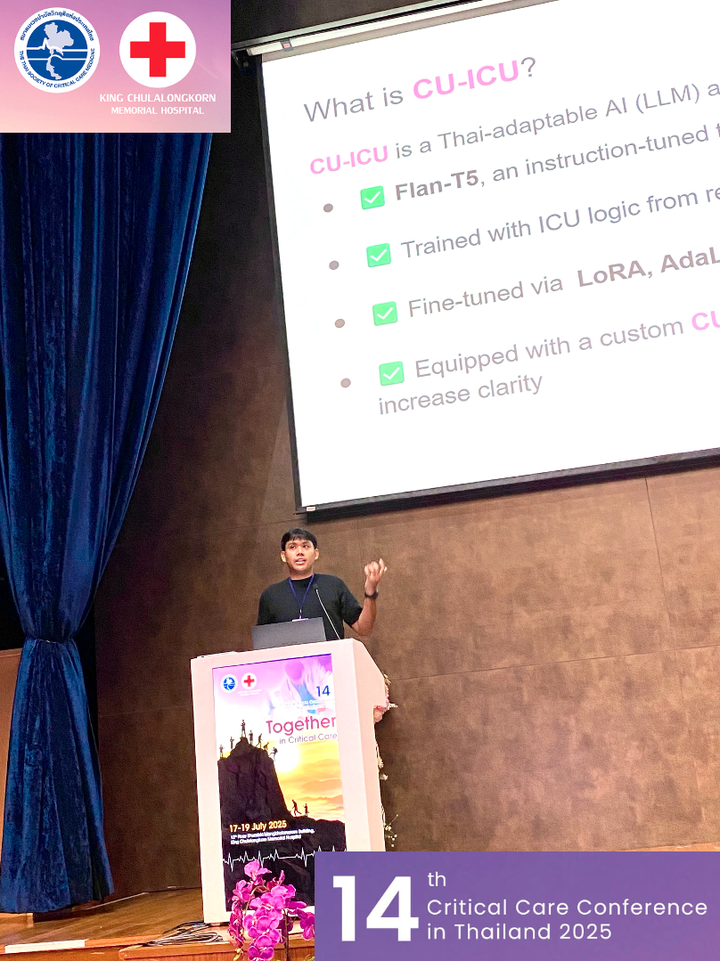
Abstract
In this oral presentation, I introduce CU-ICU, a lightweight, instruction-finetuned language model customized for intensive care units (ICUs) in Thailand. The model is built upon the T5 architecture and optimized using parameter-efficient fine-tuning techniques including LoRA, AdaLoRA, and IA3. CU-ICU is designed to handle real-world prompts from ICU scenarios (e.g., hypotension, sepsis, ventilator settings), aligning its responses with medical guidelines such as the Surviving Sepsis Campaign. I also discuss its motivation—built from personal passion rather than funding—and the model’s ability to synthesize multiple clinical signals into coherent, actionable advice. Evaluation shows promising accuracy, and feedback from clinicians attending the session confirms its relevance and usefulness. This work represents a step toward human-AI collaboration in Thai healthcare, enabling clinicians to focus more on patients and less on repetitive decision support queries.